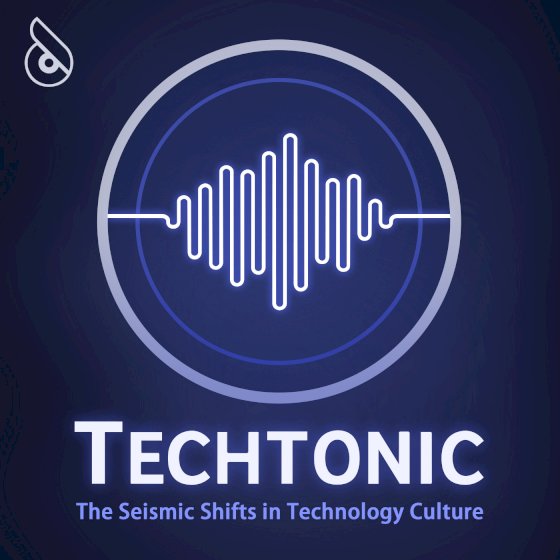A Very Geeky Household Name
Highlights and Show Notes
Many Apple users know that fortune and failure is made on the app stores. What’s even more uncertain is going it alone: being a developer with an app that’s responsible for your livelihood.
But fortune and sustainability is made every day from the sell of productivity apps. Clever apps, like MarsEdit, were far ahead of their time, which help them find a loyal user base.
This isn’t the story of Brent Simmons, the creator of MarsEdit. This is the story of and lessons learned by Daniel Jalkut, the founder of Red Sweater Software. Daniel started working for Apple at the age of 18, later went to college to study music, then later became the independent developer that took ownership of MarsEdit. This one app has been responsible for his paycheck for the last nine years.
Not a Story You Hear Every Day
Joe first discovered Daniel Jalkut on the CMD+Space show in 2013. For a long time, Joe was aware that MarsEdit was in development and that Daniel’s command center was Red Sweater, but what he didn’t know was that Jalkut is a host of listener’s favorite Core Intuition, “a podcast about indie software development for the Mac, iOS and other Apple technologies.” This past April 1, they released episode #226: A Little Bit in Crisis. (Joe will now stop referring to himself in the third person. Hey, everyone, I’m writing the show notes.)
There’s more to Mr. Jalkut than his podcast and the MarsEdit text editor. At an early age, Daniel participated in the tech community, long before the Internet change everything. Out of high school, Daniel was hired for contract work at Apple. Daniel worked for Apple for many years before mustering up the courage to leave his job security and pursue another passion: music. He went to collage and studied the arts before becoming an independent app developer.
If his journey wasn’t already different from most (first, go to college, then, find a job, eventually create your own projects on the side, if you’re up for it…), he chose to purchase and continue development of the MarsEdit text editor that specializes in desktop blog editing on the Mac.
And while many developers have followed the rush to build cross platform tools, like productivity tools with versions for Mac and iOS, with sporty cloud syncing for file management, Daniel has maintained a steady course. The majority of his focus has remained on MarsEdit for Mac.
Lulling a Baby to Sleep with Noise
In the early day of the iOS App Store, Daniel’s first son was a newborn. Daniel and his wife read ‘The Happiest Baby on the Block’ to learn about the art of rearing a child. From study, he learned that infants do well listening to static noise. The theory goes that static noise is similar to the sound inside a mother’s womb, which infants hear before birth. Many young ones find it soothing.
Daniel developed the simple app he named Swish. With just a few simple features, it presents a static white noise and visual representation, like that of a broadcast television with poor antenna reception.
To this day, Swish is a classic example of an app with a skeuomorphic interface, which we discuss later in the show.
The Urgency of iOS Apps
Like most independent Mac developers, Daniel has been allured to the iOS platform. For many, building iOS products is the obvious thing to do. As a developer, building apps for two platforms sounds more impressive and possibly affords more opportunities than sticking to one.
There is a pervasive awareness of the fame and glory that comes with apps that have millions of downloads on the iOS App Store. In 2008, there was a gold rush to build businesses and products for iOS, and it certainly paid off for early app to market.
As time moved on, Daniel discerned that the need to build apps for multiple platforms wasn’t the right path for Red Sweater. He perceived that there’s an urgency to create iOS apps, but not necessarily a well-defined and important reason all Mac developers should divide their attention with the addition of iOS projects.
Daniel has started more than one app for iOS that he’s chosen not to ship. MarsEdit, Black Ink, Fast Scripts and Clarion are products of Daniel’s dedication to the Mac platform.
If he magically had an iOS version of MarsEdit at the ready with a strategic marketing plan to go with it, he’d jump at the opportunity to grow his business. For now, he’s strategically focusing on the Mac platform.
Other Apps for Sale
Though MarsEdit is his bread and butter, Daniel has a few other apps to offer:
Black Ink
Black Ink makes it easy to download free puzzles from sources on the internet such as the Wall Street Journal and Chicago Reader, and can open “Across Lite” files from various other sources on the web. Unlike books or CD-ROMs that come with a limited selection, Black Ink puts you in charge of downloading the puzzles you love to solve.
Fast Scripts
FastScripts is a powerful script management utility. Instant access to your scripts, by keyboard shortcut or menubar.
- Global or application-specific control at the tip of your fingers. You’ll spend less time mousing and more time doing.
- An upgrade to the Apple Script Menu - a familiar design with many usability improvements and a refined UI.
Clarion
Clarion will fine-tune your musical ear. A customizable quiz partner for interval ear training.
- You need a helpful training partner, not a messy interface. Clarion’s simple quiz window is a snap to bring up for quick training between other tasks.
- Choose the instruments, scales, and octaves that are most important to you. Set up as many configurations as you like and switch between them instantly.
Why Acquire MarsEdit?
When asked about obtaining and developing MarsEdit, Daniel equates it to a tag team wrestling match:
“It takes a lot of work to come up with an idea, put in all of the original investment of experimenting with the idea…work out the bugs, come of with a user interface, ship the first version, take the feedback, come up with a way to sell it…come up with a strategy for handling customer support… And you do all of that and you get 1.0 out the door, and often there’s not much gas left in the tank.“And what was kind of cool about this situation with MarsEdit is my friend, Brent Simmons, had developed it and actually spun it off from NetNewsWire, which was and still is a popular Mac desktop news reader. I think that if that had been his focus and passion — to move forward with MarsEdit — he could’ve done a great job with it, but it was a situation where… I think it worked well for me to come into it with fresh energy.
“I often think back, like, how much did my own separate apps, like Fast Scripts and some other apps that I shipped… How much did I just get burned out at one point of shipping fatigue? With MarsEdit, not only did I come into it with fresh energy, but I also came into a scene where it wasn’t like it was making tons of money… But it was an established product and it had passionate users. And that was to Brent’s credit. He had not made it a household name, but like a very geeky household name.”
Acquisitions that Thrive
Something that Daniel has noticed is that many people believe he can’t take credit for MarsEdit’s development because he didn’t create it. It’s true that he didn’t write it from scratch, but his contributions to MarsEdit over the last nine years are significant and shouldn’t be overlooked.
It’s a heartwarming story: ‘App Acquired and Not Abandoned’. Daniel notes, “When it works out, it can really benefit both parties.”
Many a large tech company has acquired smaller businesses to drain them dry of talent, leaving the acquired company’s products to die. Google and Apple have done this several times in the last decade alone. Sure, there are exceptions, like Siri, an app created by a third party that Apple acquired and integrated into iOS. But when we think of startup acquisitions, we usually expect the products they made to fade away.
Daniel has cultivated a sustainable community of MarsEdit users, making it possible to satisfy customers with the app’s betterment and long life.
Where’s MarsEdit for iOS?
Like most developers that love Apple devices, Daniel believes that iOS has shown great potential and value. At times, he’s dabbled in more than one iOS app, but none of them have been officially released.
Daniel didn’t want to spread himself too thin. This is the main reason MarsEdit is a dedicated Mac app. When tools and platforms evolve around your app, it’s not necessary that you update with them. Why change what already works? Since the Mac app hasn’t suffered, and Daniel hasn’t created more work for himself than he has time for, it’s a win-win to stay focused on one version for one platform.
Before you start developing for multiple platforms, you need to ask yourself:
- When you’ve been a developer for one platform long enough to find stable success, do you have a real reason that’s pushing you to learn and develop for the additional one?
- Is it not good enough to be a developer for the platform you already know?
- Is the allure of the newer platform so great that you need to work on it?
- Is the money so great in the new platform that you can’t pass it up?
- Is the money dwindling for the platform that you already know?
For Daniel, the answer to all of these questions was no. “It’s not stupendously easy to make a living on the Mac with software, but if I had to make a guess, I would say that it is easier than it is on iOS for the average person running their own software company.”
Experiments on iOS
There was this one time that Daniel started an app that he had every intention to release. Daniel had the idea to build an app that let people artistically customize pictures with frames and filters and upload them to blogs. He thought of this app long before photo sharing was especially popular with the rise of Instagram.
Examples of his app’s processed images:
He spent a lot of time and money building and designing the photo editing app for iOS. But in time, he weighed what releasing the app would inadvertently do
to MarsEdit, and chose to re-focus on his first commitment.
Another iOS app that Daniel started was a mobile version of Black Ink. To hear the comical case of unfortunate events that surround it, you’re going to have to listen to the show. (Please note: Be careful what you upload to the App Store.)
All of this and much more was discussed on this week’s episode. Our thanks to Daniel for joining us this week!
Find us online:
Techtonic.fm
Give us a review on iTunes:
Techtonic podcast on iTunes
Correspond with us via email:
hello@techtonic.fm
Connect with the people on Twitter:
@techtonicfm
@jcsdarnell
@joshuapeiffer


